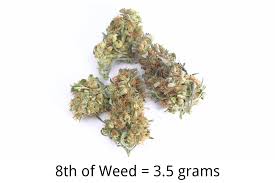Weed, In recent years, the term “weed” has garnered significant attention, particularly in the context of its growing legalization and use in various parts of the world. While “weed” is often colloquially used to refer to cannabis, it is essential to recognize the complexities and nuances associated with this plant. In this article, we’ll explore the uses, benefits, and potential risks of weed to provide a well-rounded understanding of its role in modern society.
What is Weed?
Weed, commonly known as cannabis or marijuana, is a plant that has been used for thousands of years for various purposes. Its psychoactive properties are primarily attributed to compounds called cannabinoids, the most notable of which are tetrahydrocannabinol (THC) and cannabidiol (CBD). THC is responsible for the plant’s euphoric effects, while CBD is known for its potential therapeutic benefits without causing a high.
Uses of Weed
1. Medicinal Uses: Weed has gained recognition for its medicinal benefits. Patients suffering from chronic pain, nausea, and muscle spasms often find relief through cannabis. CBD, in particular, has been researched for its potential to alleviate symptoms of anxiety, epilepsy, and multiple sclerosis. The FDA has even approved a CBD-based medication, Epidiolex, for treating certain types of epilepsy.
2. Recreational Uses: Recreational use of weed is perhaps the most well-known aspect. Many people use cannabis to enhance social experiences, relax after a long day, or explore creative endeavors. The plant’s psychoactive effects can alter perception and mood, which some users find enjoyable and beneficial for stress relief.
3. Industrial Uses: Beyond its recreational and medicinal applications, cannabis has industrial uses as well. Hemp, a variety of cannabis with low THC levels, is used to produce a range of products, including clothing, paper, and biodegradable plastics. Its versatility makes it a valuable resource in sustainable practices.
Benefits of Weed
1. Pain Management: One of the most well-documented benefits of weed is its effectiveness in managing chronic pain. THC interacts with the endocannabinoid system to reduce pain and inflammation, offering a potential alternative to traditional pain medications.
2. Mental Health: Cannabis has shown promise in treating certain mental health conditions. For example, CBD has been studied for its potential to reduce symptoms of anxiety and depression. However, it’s important to note that the effects can vary widely among individuals.
3. Appetite Stimulation: Weed is famously known for inducing “the munchies,” a condition where users experience an increased appetite. This effect can be beneficial for individuals undergoing treatments that lead to appetite loss, such as chemotherapy.
Risks and Considerations
1. Mental Health Effects: While cannabis may offer benefits for some, it can also have adverse effects on mental health. High doses of THC can cause paranoia, anxiety, and cognitive impairment. Individuals with a history of mental health disorders should approach cannabis use with caution.
2. Dependency and Abuse: There is a potential for cannabis dependency and abuse, particularly with frequent use. Though less addictive than some substances, cannabis use can lead to problematic behavior and withdrawal symptoms in some individuals.
3. Legal and Social Implications: The legal status of weed varies widely around the world. In some places, it is fully legal for both recreational and medicinal use, while in others, it remains prohibited. This patchwork of regulations can lead to legal complications and social stigma.
Conclusion
Weed, or cannabis, is a multifaceted plant with a range of uses and effects. Its potential benefits for pain management, mental health, and industrial applications are significant, but it also carries risks that must be carefully considered. As research continues and societal attitudes evolve, a nuanced understanding of weed will be crucial for making informed decisions about its use. Whether for medicinal, recreational, or industrial purposes, responsible use and ongoing education about cannabis are key to navigating its complex landscape.
You Might Also Like These:



